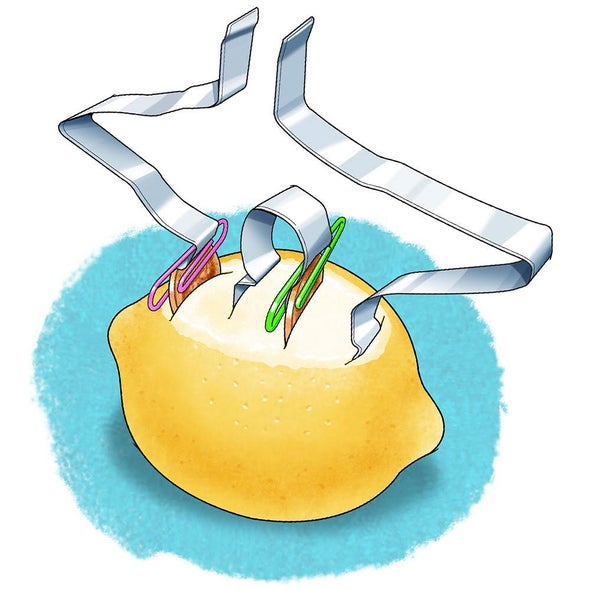 |
| September 10, 2021 |
 |
| |
| Medicine The New Science of Autoimmune Disease Millions of people are sickened by immune systems that are supposed to defend them. There are new ideas about why this happens and how to stop it. | | | | |
| |
| |
| |
| |
| |
| |
| |
| |
| |
| |
FROM THE STORE
 | | | |
| |
BRING SCIENCE HOME
 | | Generate Electricity with a Lemon Battery |  Did you know you can make a battery out of a piece of fruit? You'll be charged up on science when you feel the success of your homemade electricity! Credit: George Retseck | Can you imagine how your life would change if batteries did not exist? If it were not for this handy way to store electrical energy, we would not be able to have all of our portable electronic devices, such as phones, tablets and laptop computers. So many other items—from remote-control cars to flashlights to hearing aids—would also need to be plugged into a wall outlet in order to function. In 1800 Alessandro Volta invented the first battery, and scientists have been hard at work ever since improving previous designs. With all this work put into batteries and all the frustration you might have had coping with dead ones, it might surprise you that you can easily make one out of household materials. Try this activity and it might just charge your imagination! | |  | |
LATEST ISSUES
 |
| |
| Questions? Comments?  | |
| Download the Scientific American App |
| |
| |




